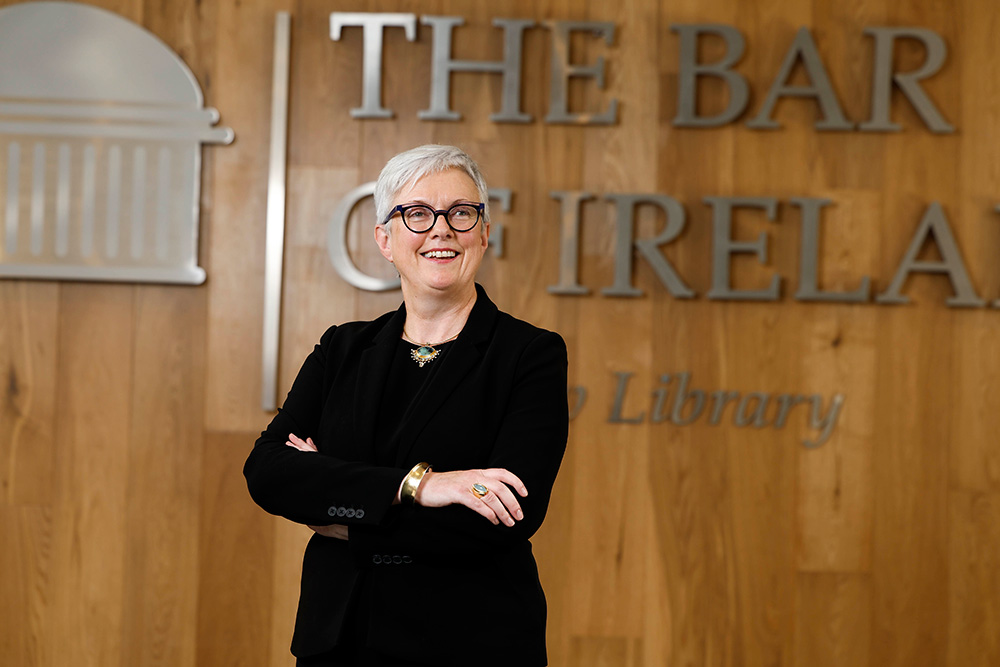Bar Council finalises plans for one-day withdrawal of services

Sara Phelan SC
Criminal barristers the length and breadth of the State are set to withdraw services on the first full day of the new legal year next week, with final arrangements now being put in place by the Council of The Bar of Ireland.
The withdrawal of professional services by criminal barristers takes place next Tuesday 3 October at all courthouses nationwide where criminal matters were, or are, listed to be heard, including the Criminal Courts of Justice in Dublin, and Courthouses in Sligo, Castlebar, Monaghan, Dundalk, Longford, Trim, Wexford, Waterford, Nenagh, Limerick, Cork and Naas.
More than 800 counsel, solicitors and others in the justice sphere have signed the Fair is Fair letter to the government calling for fee restoration. The strike has also been backed by legal rights charity FLAC and a number of local bar associations. Earlier this week, the Law Society called on ministers to accept the “irrefutable” case for fee restoration in the 2024 budget.
Since announcing the unprecedented action in July, the Bar Council has met with stakeholders across the legal sector, including the judiciary, the Law Society, the Office of the Director of Public Prosecutions, the Courts Service and others. It also recently met with the justice spokespersons of all the main parties, including Fine Gael, Fianna Fáil, Sinn Féin, Labour and the Green Party.
Fees paid under the criminal legal aid scheme remain below 2002 levels in nominal terms — a cut of more than 40 per cent in real terms.
The Bar is seeking an independent, meaningful and time-limited mechanism to determine the professional fees paid by the State to criminal practitioners in the prosecution and defence of indictable criminal matters.
Sara Phelan SC, chair of the Council of The Bar of Ireland, said: “The criminal bar is haemorrhaging junior barristers — up to two-thirds of barristers who commence practice in the criminal courts leave the criminal bar after six years. We’re feeling the effects of this already, with reports of cases being held over because counsel can’t be secured to attend.
“While this matter impacts unfairly on our profession, it will also have a detrimental effect on those who have cause to engage with the justice system.
“Whether you are a victim of crime, or stand accused, you are entitled to expect that you will have appropriate access to justice. That means having a skilled and experienced advocate to represent you – but if government continues to fail to invest in the area of criminal law, that can no longer be taken for granted.”
Seán Guerin SC, chair of the Criminal State Bar Committee, added: “Criminal barristers have been proactive and cooperative in the introduction of reforms and changed work practices.
“Our way of working has changed dramatically in the last 20 years, with the introduction of improvement and efficiencies brought about by the EU Victims Directive and the O’Malley review, as well as pre-trial hearings and electronic briefs, for example.
“Our work has increased in complexity, and it has been acknowledged by the Department of Justice and the Director of Public Prosecutions that these reforms have produced significant financial and administrative benefits to the State — and yet we continue to be isolated as a group of workers when it comes to fee restoration.
“Fair is fair, and if not addressed this will have a profound impact on the public good.”










